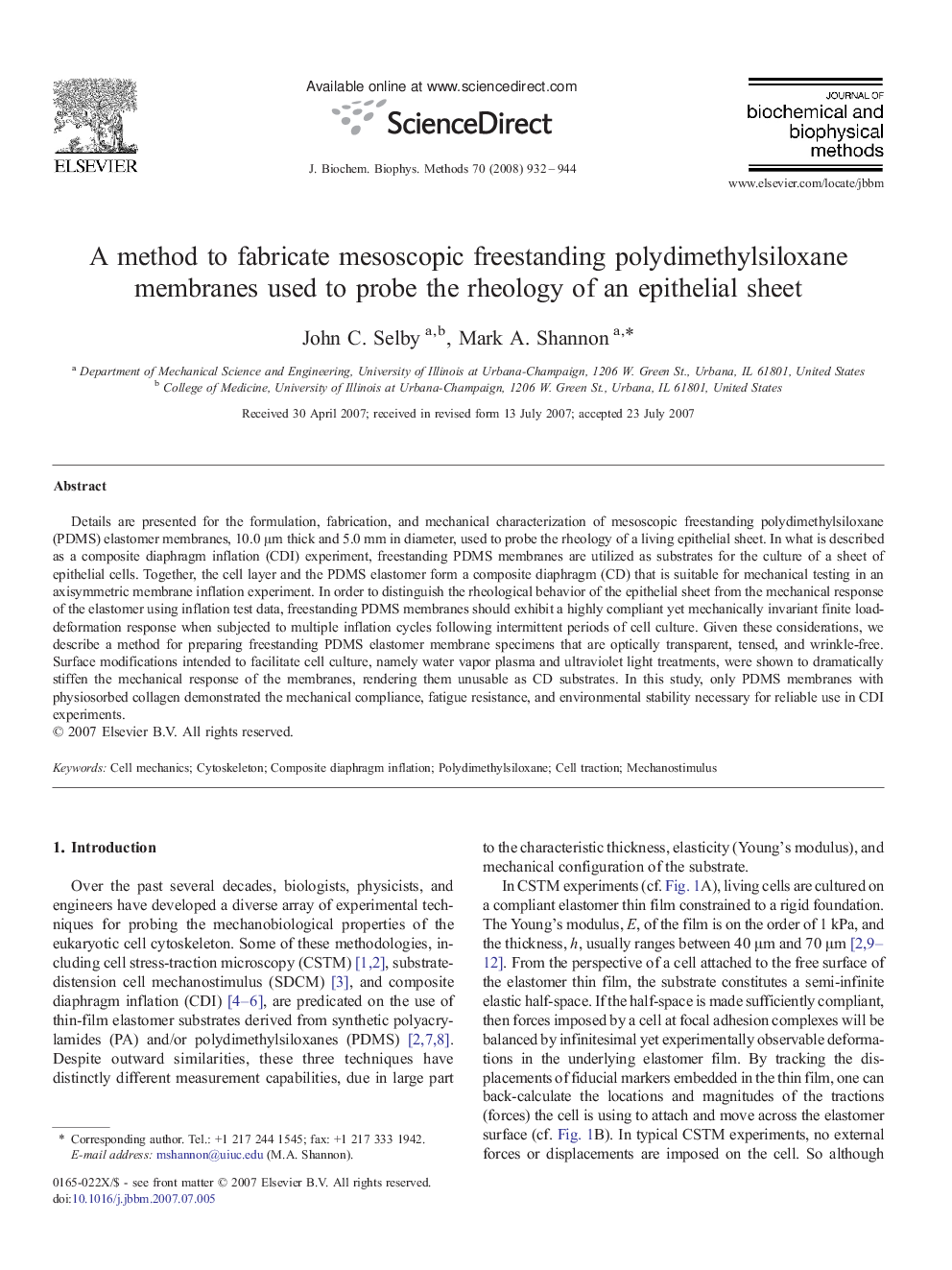| Article ID | Journal | Published Year | Pages | File Type |
|---|---|---|---|---|
| 1988371 | Journal of Biochemical and Biophysical Methods | 2008 | 13 Pages |
Abstract
Details are presented for the formulation, fabrication, and mechanical characterization of mesoscopic freestanding polydimethylsiloxane (PDMS) elastomer membranes, 10.0 μm thick and 5.0 mm in diameter, used to probe the rheology of a living epithelial sheet. In what is described as a composite diaphragm inflation (CDI) experiment, freestanding PDMS membranes are utilized as substrates for the culture of a sheet of epithelial cells. Together, the cell layer and the PDMS elastomer form a composite diaphragm (CD) that is suitable for mechanical testing in an axisymmetric membrane inflation experiment. In order to distinguish the rheological behavior of the epithelial sheet from the mechanical response of the elastomer using inflation test data, freestanding PDMS membranes should exhibit a highly compliant yet mechanically invariant finite load-deformation response when subjected to multiple inflation cycles following intermittent periods of cell culture. Given these considerations, we describe a method for preparing freestanding PDMS elastomer membrane specimens that are optically transparent, tensed, and wrinkle-free. Surface modifications intended to facilitate cell culture, namely water vapor plasma and ultraviolet light treatments, were shown to dramatically stiffen the mechanical response of the membranes, rendering them unusable as CD substrates. In this study, only PDMS membranes with physiosorbed collagen demonstrated the mechanical compliance, fatigue resistance, and environmental stability necessary for reliable use in CDI experiments.
Related Topics
Life Sciences
Biochemistry, Genetics and Molecular Biology
Biochemistry
Authors
John C. Selby, Mark A. Shannon,
